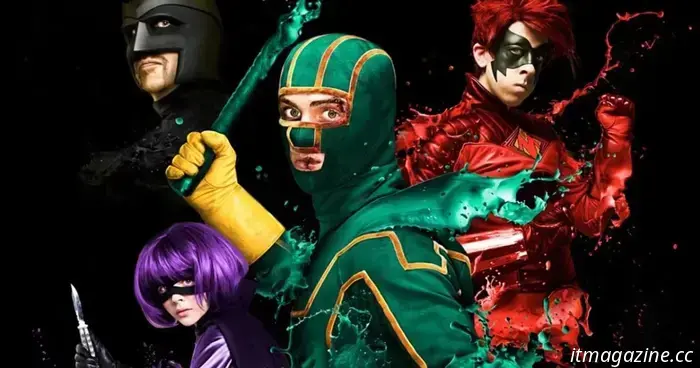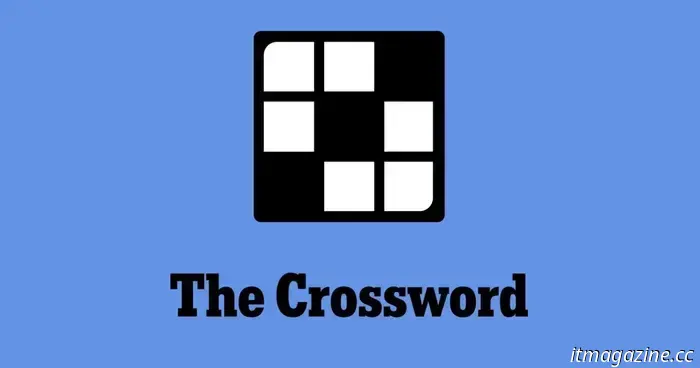
Fifteen years on, this rebellious superhero film continues to impress.
The superhero genre experienced a significant surge in popularity during the 2010s. Led by Sam Raimi’s Spider-Man trilogy, Christopher Nolan’s Batman series, and the X-Men films from 20th Century Studios, this genre became a formidable presence in cinema. The introduction of the Marvel Cinematic Universe in 2008 ignited a superhero boom, marking the genre's undeniable peak in mainstream culture. Nestled between Marvel’s initial efforts and their eventual leadership is Matthew Vaughn’s subversive superhero film, Kick-Ass, released in 2010.
Based on the comic book by Mark Millar and John Romita Jr., the film stands as a milestone in superhero cinema. It may not have been a commercial hit, nor did it elevate the titular character to the level of recognition enjoyed by Marvel and DC’s icons. Nonetheless, Kick-Ass represented a complete departure for the superhero genre, stretching its limits and introducing more chaotic and audacious viewpoints. In a time when the superhero genre seems to be losing its appeal, Kick-Ass feels like a refreshing breath of fresh air, aging gracefully even amid the countless superhero properties released each year. On the occasion of its fifteenth anniversary, it’s worth revisiting this wildly violent and dynamic treasure of the superhero domain, which feels just as relevant today as it did in 2010.
Can an ordinary person truly kick ass?
Universal Pictures / Lionsgate
Kick-Ass centers around Dave Lizewski (Aaron Taylor-Johnson), a teen whose passion for comic books drives him to become a crime-fighter known as Kick-Ass. During his inaugural mission, he suffers severe injuries after being stabbed and run over by a car, resulting in metal replacements for several bones, which grant him enhanced durability and pain resistance. Soon, Kick-Ass finds himself entangled in a real conflict between the psychotic mafia boss Frank D’Amico (Mark Strong) and a duo of masked vigilantes—Big Daddy (Nicolas Cage) and Hit-Girl (Chloë Grace Moretz)—who possess the combat skills he desperately lacks.
Reflecting on the film, it’s remarkable how it brought together an ensemble of emerging actors, giving many of them a significant career boost. Taylor-Johnson, already popular in the UK from the 2008 romantic comedy Angus, Thongs, and Perfect Snogging, found his breakthrough in Kick-Ass, which subsequently paved the way for his leading man status throughout the 2010s. Similarly, Moretz solidified her role as the go-to child actress of the early 2010s, with Hit-Girl establishing her as one of the most promising talents of her generation.
Several lesser-known actors gained recognition through Kick-Ass. Mark Strong, who had established a strong partnership with director Matthew Vaughn starting with Stardust and continuing with the Kingsman series, solidified his status as a prominent Hollywood antagonist. At the same time, Christopher Mintz-Plasse, known for his breakout role as McLovin in the 2007 comedy Superbad, had the opportunity to showcase a different aspect of his acting repertoire.
Director Matthew Vaughn made a substantial leap into the limelight with this film, later directing the acclaimed X-Men: First Class and the Kingsman series. Indeed, Kick-Ass stands out as a film that prompts reflection due to the high level of talent involved, both in front of and behind the scenes.
Superheroes unleashed
Lionsgate
The concept of Kick-Ass was truly unconventional for 2010, a time when superhero films leaned towards a more lighthearted angle and embraced familiar clichés. Unlike its contemporaries, Kick-Ass did not embody superpowers and avoided the hyper-realistic, crime-infused narrative seen in Christopher Nolan’s Batman series. Instead, it struck a balance, blending humor and the inherently absurd tone of traditional superhero films while rooting the story in the ridiculousness of an ordinary teenager aiming to become a vigilante.
Kick-Ass was acutely aware of its satire, actively working to redefine the genre’s punchlines. It was outrageously violent and vulgar—an infamous line in which a then-thirteen-year-old Moretz’s Hit-Girl uttered a vulgarity generated significant backlash from shocked audiences back in 2010. The film's overall violence, especially with Hit-Girl at the forefront, sparked discussions among notable critics, including Roger Ebert, who criticized it for glorifying violence among children. While today’s standards may view this content as less shocking, the scene of adult Frank D’Amico brutally assaulting Hit-Girl stood out as particularly harsh during its original release.
There was also something refreshingly candid about the film's portrayal of anger, dismissal, and cruelty. While not packed with the weighty, shocking intensity characteristic of the best Martin Scorsese films, it offered far more than expected from a comic book adaptation. This film didn’t feature friendly neighborhoods or heroic Wolverines; instead, Kick-Ass presented a bleak cynicism typically associated with



Other articles
 Take advantage of the opportunity to purchase a 2TB Samsung SSD for just $130.
The 2TB version of the Samsung 990 Evo Plus SSD is currently offered at a discounted price of $130, thanks to a $47 reduction from Samsung.
Take advantage of the opportunity to purchase a 2TB Samsung SSD for just $130.
The 2TB version of the Samsung 990 Evo Plus SSD is currently offered at a discounted price of $130, thanks to a $47 reduction from Samsung.
 Grab a Fire tablet for just $45 today in this incredible Amazon deal.
Currently, the Amazon Fire 7 tablet is available for only $45, which is a $15 discount from its original price of $60. This tablet serves as a fantastic alternative to a Kindle and is an enjoyable option for an economical tablet.
Grab a Fire tablet for just $45 today in this incredible Amazon deal.
Currently, the Amazon Fire 7 tablet is available for only $45, which is a $15 discount from its original price of $60. This tablet serves as a fantastic alternative to a Kindle and is an enjoyable option for an economical tablet.
 Ninja Gaiden: Ragebound serves as a strong reminder that 2D games continue to dominate.
Ninja Gaiden: Ragebound is a intense return to retro gaming, featuring a few refreshing elements.
Ninja Gaiden: Ragebound serves as a strong reminder that 2D games continue to dominate.
Ninja Gaiden: Ragebound is a intense return to retro gaming, featuring a few refreshing elements.
 NYT Strands today: clues, spangram, and solutions for Wednesday, April 16.
Strands offers a challenging twist on the traditional word search from NYT Games. If you're having difficulty and can't figure out today's puzzle, we've got assistance and clues for you right here.
NYT Strands today: clues, spangram, and solutions for Wednesday, April 16.
Strands offers a challenging twist on the traditional word search from NYT Games. If you're having difficulty and can't figure out today's puzzle, we've got assistance and clues for you right here.
 NYT Crossword: solutions for Wednesday, April 16
The crossword puzzle in The New York Times can be challenging, even if it's not the Sunday edition! If you're facing difficulties, we're available to assist you with today’s clues and solutions.
NYT Crossword: solutions for Wednesday, April 16
The crossword puzzle in The New York Times can be challenging, even if it's not the Sunday edition! If you're facing difficulties, we're available to assist you with today’s clues and solutions.
 Samsung Galaxy S25 users receive surprise new features in the latest update.
The recent update for the Samsung Galaxy S25 introduces a media widget, improves animations, and enhances overall performance.
Samsung Galaxy S25 users receive surprise new features in the latest update.
The recent update for the Samsung Galaxy S25 introduces a media widget, improves animations, and enhances overall performance.
Fifteen years on, this rebellious superhero film continues to impress.
Fifteen years ago, Matthew Vaughn transformed the superhero genre with Kick-Ass, a provocative adaptation of the comic of the same name that truly embodied its title.
